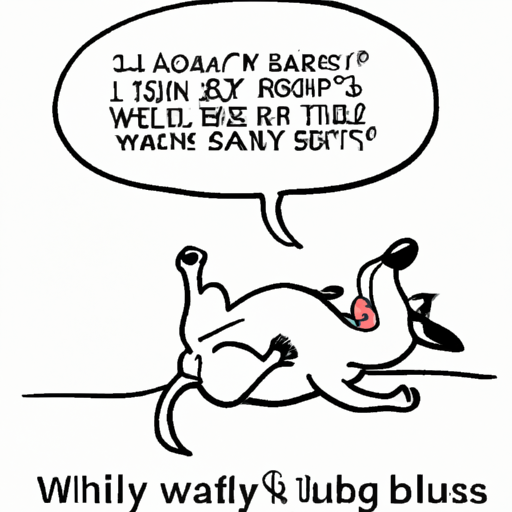Introduction
Dogs have a reputation for being man’s best friends, but there’s one particular activity where this bond truly shines – belly rubs. You’ve probably noticed how your furry friend will quickly flop onto their back, tail wagging enthusiastically, at the mere hint of a belly rub. But why do dogs love belly rubs so much? Let’s delve into the scientific and emotional reasons behind this.
The Science Behind the Love for Belly Rubs
Every time you reach down to give your dog a belly rub, you’re actually triggering a specific set of nerves. The act of rubbing your dog’s belly activates their brain’s pituitary gland to release a hormone called prolactin. This hormone is responsible for feelings of contentment and relaxation.
- The Belly is a Vulnerable Area: Dogs expose their bellies as a sign of trust and submission. By rubbing their belly, you’re acknowledging their trust in you.
- Endorphin Release: Belly rubs also stimulate your dog’s brain to release endorphins, chemicals that act as natural painkillers and mood elevators.
Here’s a brief table summarising the science behind belly rubs:
| Action | Result |
|---|---|
| Belly rub | Activation of pituitary gland |
| Release of prolactin | Induces feelings of contentment |
| Exposure of belly | Sign of trust & submission |
The Emotional Connection
Beyond the science, there’s also an emotional aspect to belly rubs. When you rub your dog’s belly, you’re not just giving them a physical massage – you’re also conveying your love and affection.
- Bonding Time: It’s a special moment shared between you and your pooch, strengthening your bond.
- Attention and Affection: Dogs crave attention and affection just like humans. Belly rubs provide them with the reassurance that they are loved and cared for.
It’s Not Just About the Belly
While most dogs love belly rubs, remember that each dog is an individual with their own likes and dislikes. Some might prefer a good ear scratch or a butt pat instead of a belly rub. The key is to observe your dog’s reactions and respect their preferences.
The Downside of Belly Rubs
Yes, you read that right. There can be a downside to belly rubs. Some dogs might become overly reliant on them for comfort and reassurance. This could lead to behavioral issues if not managed properly.
- Overdependence: Dogs might start seeking constant belly rubs, which can disrupt your daily routine.
- Inhibition of Natural Behaviors: Constant belly rubs might inhibit your dog’s natural behaviors like exploring and playing.
FAQ
Q: My dog doesn’t like belly rubs. Is that normal?
A: Yes, it’s completely normal. Each dog has their own preferences.
Q: Can I give my dog too many belly rubs?
A: Yes, too many belly rubs can lead to overdependence and inhibit natural behaviors.
Q: What other ways can I show affection to my dog?
A: You can show affection through quality time, walks, play sessions, and verbal praises.



